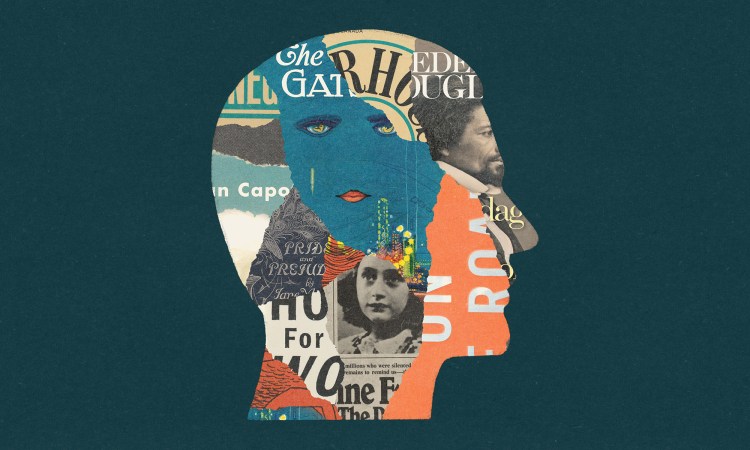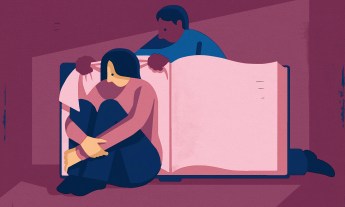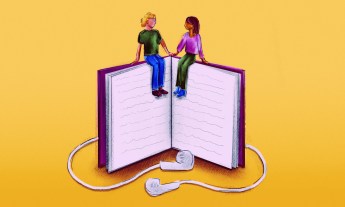
This post is part of TED’s “How to Be a Better Human” series, each of which contains a piece of helpful advice from people in the TED community; browse through all the posts here.
Reading is a good thing, so obviously doing lots of it is good, right?
Well, this kind of thinking is why people try to speed-read, show off their huge libraries (guilty!), and listen to audiobooks at 2x or 3x speed.
But not all reading is created equal. As Epictetus said, “I cannot call somebody ‘hard-working’ knowing only that they read.” He needed to know what and how they read too.
And even though reading is better than a lot of other activities, you can still do it poorly or for poor reasons. “Far too many good brains,” Seneca said, “have been afflicted by the pointless enthusiasm for useless knowledge.”
To be a great reader, it is not enough that you read, it’s also how you read. The following strategies by no means are a complete list, but if you implement even a couple of them, I’m comfortable guaranteeing that you’ll not only be a better reader but a better person too.
1. Stop reading books you aren’t enjoying
If you find yourself wanting to speed up the reading process on a particular book, you might want to ask yourself: “Is this book any good?”
You turn off a TV show or movie if it’s boring. You stop eating food that doesn’t taste good. You unfollow people when you realize their content is useless.
Life is too short to read books you don’t enjoy reading. My rule is 100 pages minus your age — so if you’re 30 years old and a book hasn’t captivated you by page 70, stop reading it.
That way, as you age, you have to endure crappy books less and less.
2. Keep a commonplace book
In his book Old School, Tobias Wolff’s semi-autobiographical character takes the time to type out quotes and passages from great books to feel great writing come through him. I do this almost every weekend in what I call a “commonplace book” — a collection of quotes, ideas, stories and facts that I want to keep for later. It’s made me a much better writer and a wiser person.
I am not alone.
In 2010, when the Reagan Presidential Library was undergoing renovation, a box labeled “RR’s desk” was discovered. Inside it were the personal belongings that Ronald Reagan kept in his office desk, including a number of black boxes containing 4×6 note cards filled with handwritten quotes, thoughts, stories, political aphorisms and one-liners. They were separated by themes like “On the Nation,” “On Liberty.” “On War,” “On the People,” “The World,” “Humor” and “On Character.”
This was Ronald Reagan’s version of a commonplace book, and Lewis Carroll, Walt Whitman and Thomas Jefferson all kept their own version of a commonplace book.
As Seneca advised, “We should hunt out the helpful pieces of teaching and the spirited and noble-minded sayings which are capable of immediate practical application — not far far-fetched or archaic expressions or extravagant metaphors and figures of speech — and learn them so well that words become works.”
3. Reread the masters
You were in high school when you read The Great Gatsby for the first time. You were just a kid when someone tell you the story of Odysseus.
The point is: You got it, right? You’ve already read them or learned about them, so you’re done, right?
We cannot be content to simply pick up a book once and judge it by that experience; it’s why we have to read and reread.
As Seneca put it, “You must linger among a limited number of master-thinkers, and digest their works, if you would derive ideas which shall win firm hold in your mind.” Because the world is constantly changing and we are constantly changing, therefore what we get out of books can also change.
4. Ask people you admire for book recommendations
Ralph Waldo Emerson’s line was “If we encounter a man of rare intellect, we should ask him what books he reads.”
When I was a teenager, I got in the habit of doing this. Every time I would meet a successful or important person I admired, I would ask them: “What’s a book that changed your life?” And then I would read that book.
If a book changed someone’s life — whatever the topic or style — it’s probably worth the investment. If it changed them, then it will likely at least help you.
5. Don’t just learn from your own experience
“If you haven’t read hundreds of books,” General James Mattis said, “you’re functionally illiterate.” Humans have been fighting and dying and struggling and doing the same things for eons. To not avail yourself of their knowledge is arrogant and stupid.
How dare you waste investors’ money by not reading and learning from the mistakes of other entrepreneurs? How dare you so take your marriage or your children for granted that you think you can afford to figure these out by doing the wrong things first?
Too much depends on you for you to learn solely by experience — you must also learn by the experiences of others. Drink deeply from history, from philosophy, and more. Study the cautionary tales and the screw-ups, the failures and successes.
If you don’t, it’s a dereliction of duty.
6. Get out of a dry spell
The path to wisdom is not a straight one. The journey is long and circuitous with twists and turns, ups and downs, highs and lows. Maybe you’re in the middle of a low right now, or you’re at the very bottom of the valley. This can be a scary place to be, because it can feel like you’ll be stuck there forever.
You’re stuck in a slump.
A reading slump always pops up for me, for instance, during a book launch when it’s nearly impossible for me to concentrate enough to read. But I’ve found I’m able to get out of it by rereading something that has really spoken to me in the past.
Instead of expecting a random book to reach me, I go back to something that’s already spoken volumes in the past … and then I find out how much more it has to say. I’ll grab a new translation of Marcus Aurelius and see him from a different view, or I’ll go reread a favorite novel, such as A Man in Full or The Moviegoer or Memoirs of Hadrian.
To learn more strategies to help you be a better reader — and human — go to Ryan Holiday’s blog, where this post was first published. There, you can also read more of his posts and find out about his books and other work.
Watch his TEDxDunapart Talk on stoicism here:











